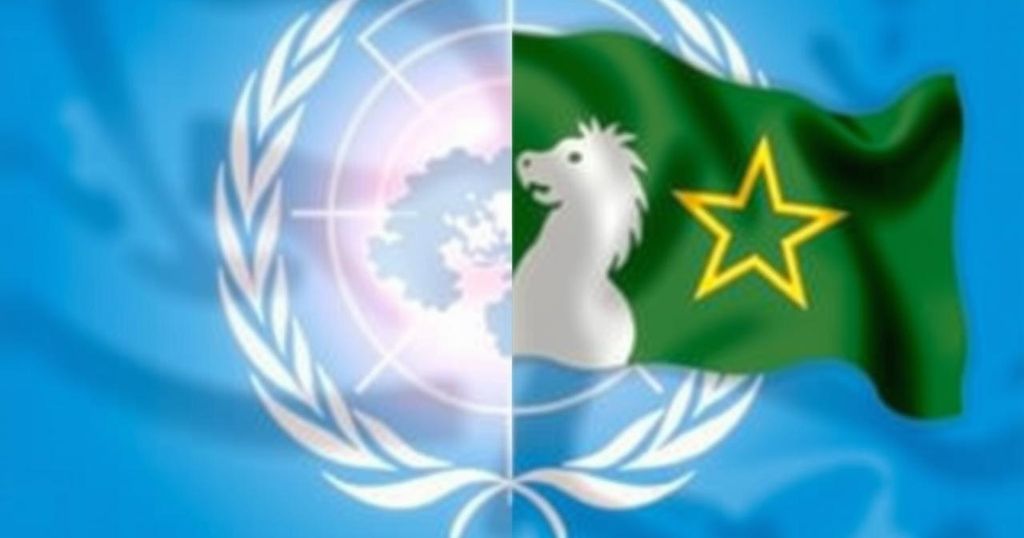The African Union has urged Somalia and Ethiopia to quickly implement a new agreement aimed at reducing tensions over Ethiopia’s access to the sea. Following a controversial pact with Somaliland, the AU emphasizes immediate action is needed. The recently brokered deal, facilitated by Turkey, aims for cooperative efforts and expected discussions to start by February. However, questions remain regarding the previous deal with Somaliland and its impact on the new accord.
The African Union (AU) has officially called upon Somalia and Ethiopia to act swiftly in executing a groundbreaking agreement intended to alleviate tensions resulting from Ethiopia’s aspirations for maritime access. AU Commission Chairman Moussa Faki Mahamat highlighted the significance of the accord and the necessity for immediate actions to solidify the peace achieved. This agreement follows an escalation in conflict between the nations after Ethiopia signed a contentious pact with Somaliland, over which Somalia expressed strong opposition due to concerns regarding territorial sovereignty.
Negotiations designated by Turkey culminated in what has been referred to as a “historic” agreement, with Turkish President Recep Tayyip Erdoğan announcing the arrangement as a step toward facilitating Ethiopia’s long-sought access to the sea. The accord, which is intended to preserve Somalia’s sovereign rights while addressing Ethiopia’s landlocked status since Eritrea’s independence in 1993, aims to foster collaborative efforts between both countries towards mutual prosperity.
Under the new framework, Ethiopia and Somalia are tasked with resolving their differences through technical discussions aimed at various commercial and bilateral arrangements. These talks are anticipated to commence by February and are expected to conclude within four months, with Turkey offering mediation as required. Nonetheless, uncertainties remain regarding Ethiopia’s earlier agreement with Somaliland, which may not be entirely superseded by this new treaty.
Both the AU and the Intergovernmental Authority on Development (IGAD) have praised the accord as a meaningful advancement in addressing longstanding grievances. IGAD’s Executive Secretary, Workneh Gebeyehu, commended the agreement as indicative of a sincere dedication to conflict resolution. Somali President Hassan Sheikh Mohamud underscored the criticality of peace and cooperation in the region, while Ethiopian Prime Minister Abiy Ahmed reaffirmed Ethiopia’s need for coastal access while dismissing any intentions of conflict.
The agreement signifies a pivotal moment in Ethiopia-Somalia relations, yet questions persist concerning the implications for the agreement with Somaliland. The focus will now be on both nations converting this diplomatic success into tangible, sustainable progress.
The relationship between Somalia and Ethiopia has been historically fraught with tensions, primarily owing to Ethiopia’s lack of direct access to the sea. This issue has intensified particularly following Ethiopia’s controversial agreement with Somaliland, which is a self-declared independent region, to utilize its coastline for port and military purposes. The African Union’s intervention highlights the importance of diplomatic negotiations in resolving these disputes and maintaining regional stability, especially following escalations that have threatened peace in the Horn of Africa.
The African Union’s call for swift action on the agreement between Somalia and Ethiopia marks a significant effort towards peace and cooperation in the region. While the accord promises mutual benefits and aims to resolve historical grievances, the implications of Ethiopia’s previous deal with Somaliland remain uncertain. The next steps will be crucial for both nations in transforming this agreement into meaningful and lasting benefits for their peoples.
Original Source: newscentral.africa






